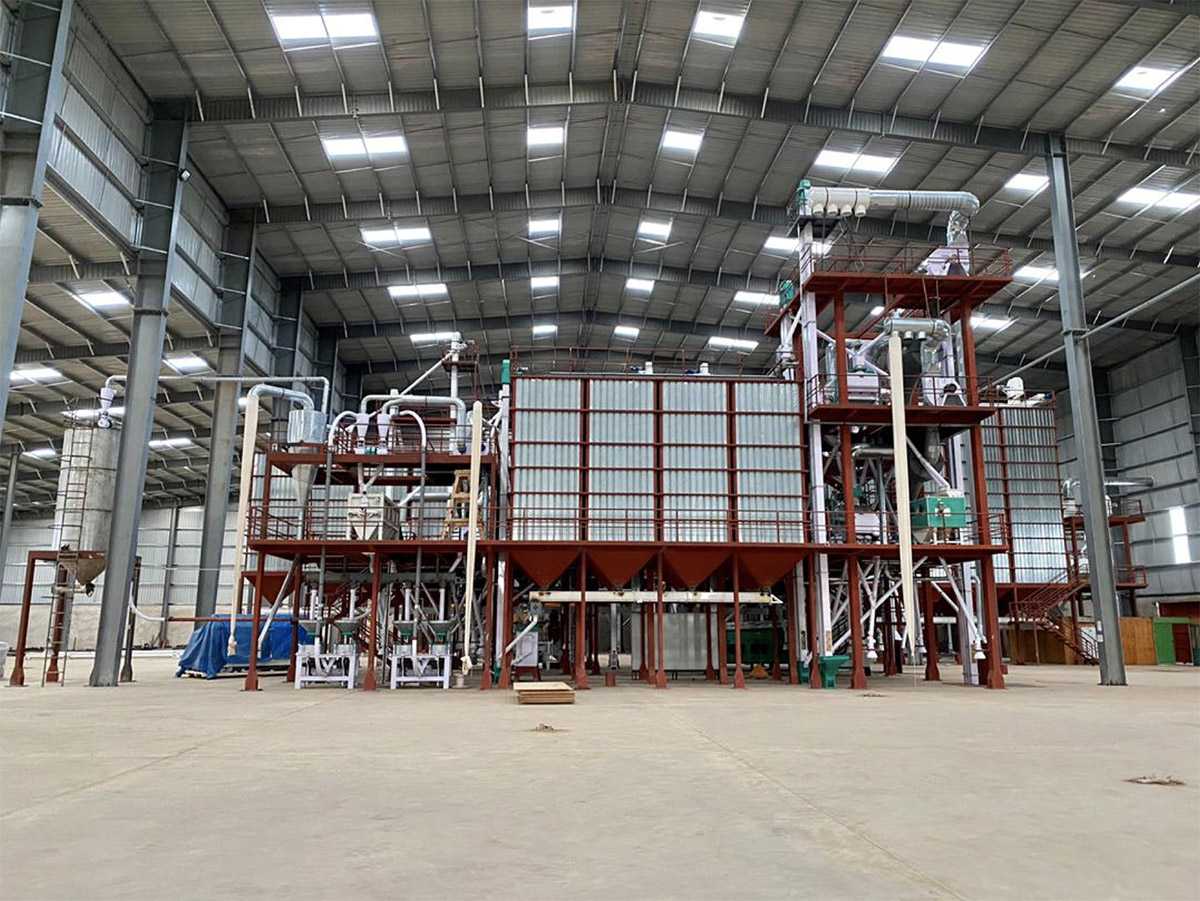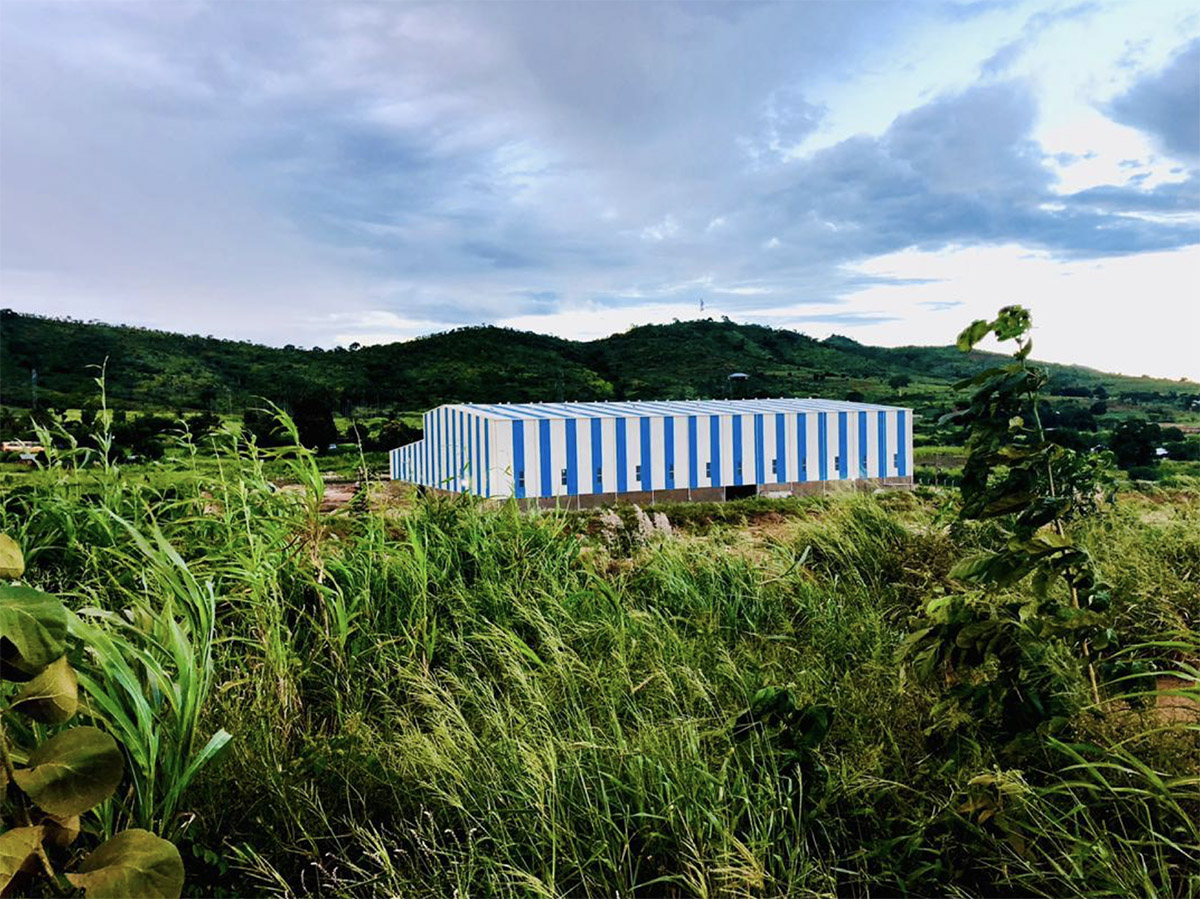August 18, 2021
The managing director for Mahashree Group in Tanzania talks about production and the effects of India's trade agreement.



Mahashree Group’s plant in Morogoro, Tanzania.
The managing director for Mahashree Group in Tanzania talks about production and the effects of India's trade agreement.
Mahashree Group was established in 2017. Today, the company has 152 employees and partners with more than 1,000 farmers. By 2024, the company plans to partner with at least 50,000 farmers in Tanzania and neighboring countries.
Mahashree Group implements a farm-to-fork strategy and is involved at every link of thee value chain from the farm to the table.
"As a vegetarian, I recognise the importance of nutrition and the production of healthy food," says Maulik Maheshwari, the managing director for Mahashree Group in Tanzania.
GPC - How did you get your start in this industry?
Maulik – We saw that Tanzania had a lot of pulses and the possibility to work as closely as possible with the farmers. As a vegetarian, I recognise the importance of nutrition and healthy food. Working closely with the community and farmers helps us create sustainable and nutritional food.
GPC - What is the company’s vision?
Maulik – Our vision is to create healthy and sustainable products and produce safe food. We want to be carbon negative, not neutral, and actually give back to nature. We support communities and empower women. At least 50% of the employees we are now hiring are women.
GPC - What pulses do you mainly deal in?
Maulik – We deal in pigeon peas, black beans, mung beans, chickpeas, red kidney beans and more. We also deal in spices and seeds.
GPC - What markets do you supply?
Maulik - We have diversified our markets. At the moment, we export to 15 countries but we are expanding. We export to markets in South Asia, Malaysia, China, Singapore, Africa, Canada, Spain and many other desintations. India is our biggest export market.
GPC - How has the trade agreement with India affected the company?
Maulik – Quite a lot, actually. Tanzania, in general, has been greatly affected. India is a huge market for Tanzanian products, so the year India stopped buying from us, farmers did not bother to harvest their crops because the cost of harvesting was greater than the value of the crop. Those drastic drops in prices are devastating.
Some times, like this year, the Indian market is completely open. Other times licenses are required and that affects us, too.
Market volatility is huge. Today there is no demand as such, so we are unsure about how much to stock and how much to spend on storage. We don’t know when the market will open and if there will be a rush to buy when it does. If a country had a plan, then it is easier for processors like us to plan for the entire crop year.
It definitely impacts us when India stops and strats buying, and when it makes any change to policy.
This also impacts Malawi. But now that India has signed an agreement with Malawi, as it has with Mozambique, I believe that Malawi will at least have a few smooth years; the agreement is for five years.
Surprisingly, Tanzania does not have such an agreement at the moment, so our situtation remains volatile.
GPC – Has the Covid pandemic affected your business?
Maulik – Yes, but for the better, actually. We didn't have lockdowns and it went surprisingly well for us. Production wasn’t affected and when COVID hit, people realized they needed food. On top of normal demand, we had panicked buying. Since the pandemic, people have become more health and environmentally conscious.
GPC - Do you see changing trends with respect to vegetarian diets and health awareness?
Maulik – Yes, definitely. The vegan trend is popular now and people are more health-aware. People want food that is better for them. In the U.S. alone, there’s a much larger range of vegetarian products in stores than there were three yeas ago. We are seeing the same trend in restaurants and that’s awesome!
GPC – Do you think the trend will continue?
Maulik – Yes, and keep growing throughout the world, as well.
GPC - Why did you decide to start your business in Tanzania?
Maulik – We recognized that Tanzania has a lot of pulses that are local to the region. Growing regional products is more sustainable and better for the environment. It also provides an opportunity to help the community. Being in Tanzania made it possible for us to work closely with the farmers and produce the highest quality. At the source, you will find the best nutrition.
GPC – How big is the typical farm in Tanzania and Malawi?
Maulik – Most farms are about 2-5 acres in size. We have mostly smallholder farmers in Tanzania. There are farms between 10-30 acres and those that are between 50-100 acres, as well, but their numbers are quite small. Most farmers farm no more than 5 acres.
GPC - What is domestic demand like in Tanzania and Malawi?
Maulik -There is almost no domestic demand at the moment. The demand we do have is mostly for beans.
GPC – What are the company's plans for the next five years?
Maulik - We are trying to reach more countries with our products. Farming in Tanzania is done more or less the same way it has been done for 100 years. We are tring to modernize farming and increase productivity with the help of machinery. We will continue to help communities and strive to make an even bigger, positive impact on the environment.

Mahashree Group’s plant.
Disclaimer: The opinions or views expressed in this publication are those of the authors or quoted persons. They do not purport to reflect the opinions or views of the Global Pulse Confederation or its members.